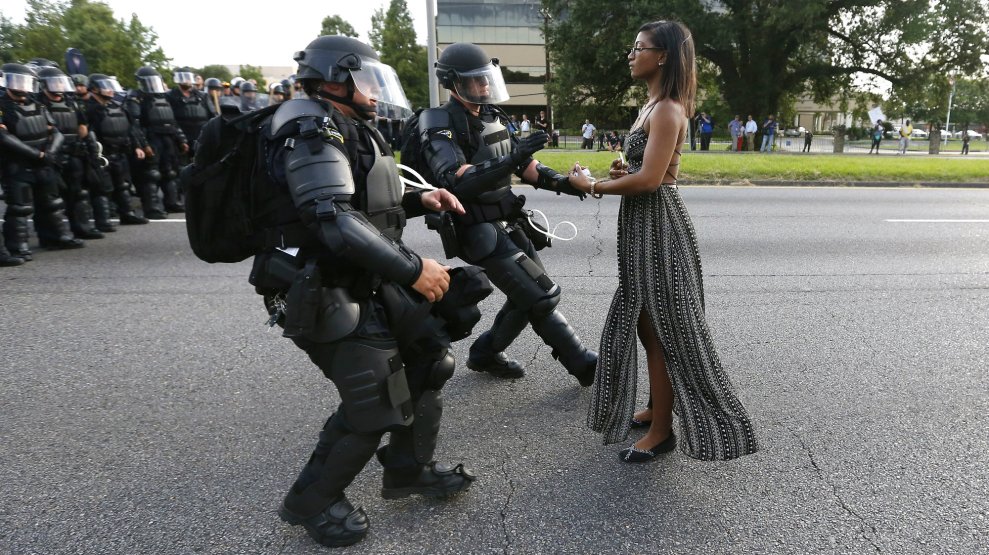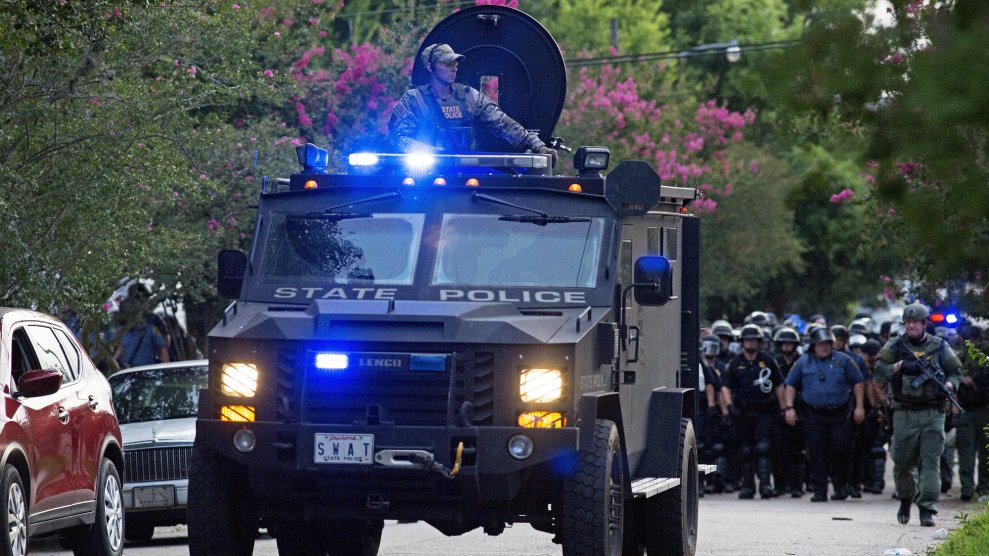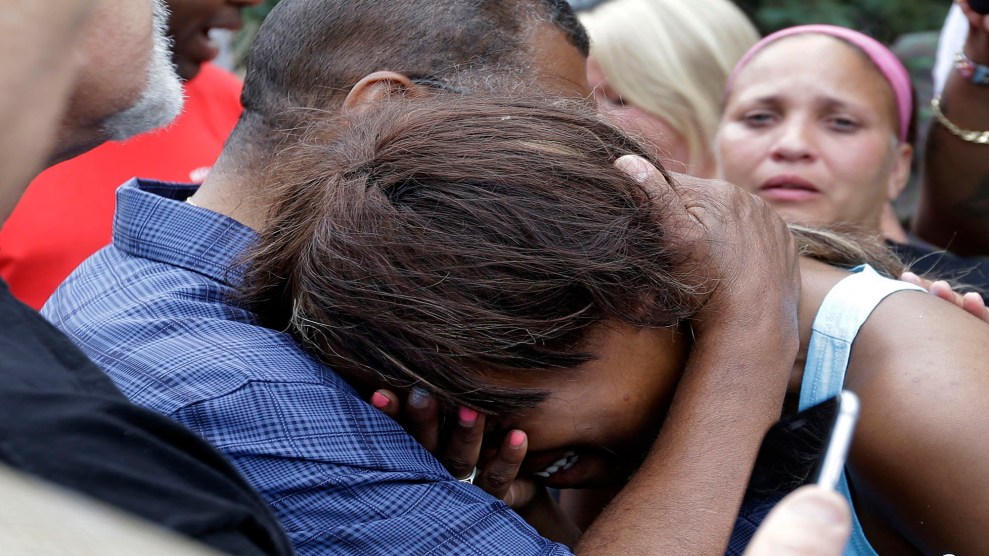
Police arrest Leshia Evans at a protest over the police shooting death of Alton Sterling in Baton Rouge on July 9.Jonathan Bachman/Reuters
Amid renewed nationwide protests over police killings of black men, a representative from the United Nations toured the United States with a peculiar goal: to assess whether the exercise of freedom of assembly and association in the country conforms to international human rights law.
UN special reporter Maina Kiai concluded a 17-day tour on Tuesday, during which he met with protesters, law enforcement, and government officials in 10 cities—including Baton Rogue, Louisiana; Ferguson, Missouri; Baltimore; and New York City—and observed protests at the Republican National Convention in Cleveland and the Democratic National Convention in Philadelphia, as well as Black Lives Matter protests in other cities. A full UN report on Kiai’s visit is due in June 2017, but Kiai posted his preliminary findings on his Facebook page on Wednesday. Many of them weren’t pretty:
- US police officers understand appropriate crowd management and de-escalation techniques, but chose not to use them, Kiai said. Black protesters face more aggressive responses from police than other groups, experience “more intimidation and more disrespect,” and are detained longer and face more serious charges when arrested. Such treatment can discourage people from participating in protests—an illegal curtailment of their right to do so, Kiai said. He also compared the Baton Rouge Police Department’s aggressive response earlier this month to protesters of Alton Sterling‘s death to the “mismanagement of protests” seen in Ferguson and Baltimore and noted that the Cleveland Police Department contributed to “escalation” during protests at the GOP convention last week.
- The Department of Justice’s 1033 Program has “caused serious harm to the practice of and thinking around management of crowds,” by giving civilian police departments military equipment to use against protesters, Kiai said. “Protesters are not war enemies” and must not be treated as such, Kiai said, adding that violent acts by a few protesters should not be used to “strip other individuals of their right to continue the assembly.”
- Kiai slammed US police for allegedly spying on Black Lives Matter protesters. He noted, as Mother Jones reported last month, that ahead of the GOP convention, Black Lives Matter organizers in Cleveland had received visits from the FBI that many found intimidating. He also noted that at a Black Lives Matter protest in Philadelphia, protesters pointed out to him an undercover officer who was filming them, a practice he called “unfathomable.” Cops should only film at protests to record a crime in progress, he said, not to “intimidate or provoke protesters.”
Kiai said Louisiana’s new “Blue Lives Matter” hate crime law and similar proposals in other cities could have “disastrous effects.” He argued that the arrest of Christopher LeDay, the man who shared the Alton Sterling police shooting video widely, amounted to intimidation and harassment. He also criticized stop-and-frisk and called on the Department of Justice to enforce consent decrees against “as many of the [United States’] 18,000-plus local law enforcement jurisdictions” as possible in order to reduce discrimination in law enforcement.
This isn’t the first time the United Nations has involved US policing and protests in the global dialogue on human rights. Members of the Black Lives Matter movement spoke on a panel at a UN event in New York City earlier this month, and a delegation of organizers from Chicago testified before the UN Committee Against Torture in Geneva, Switzerland, in November 2014, along with the parents of Michael Brown.
You can read Kiai’s full assessment of his tour here.

















